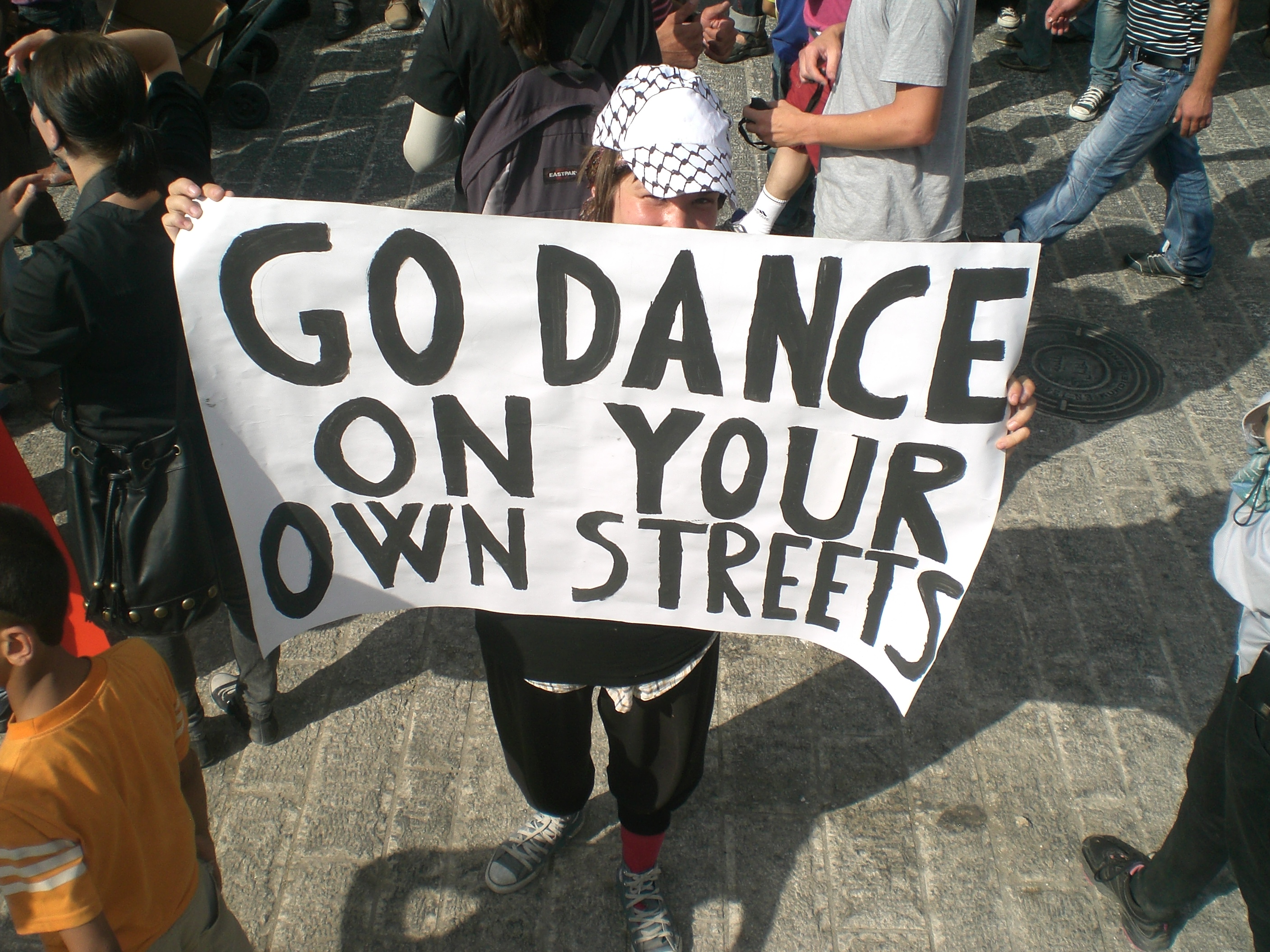Tag: Video
-
Hebron ‘dance protest’ against Israeli soldiers and settlers
10 July 2010 Over 100 Palestinians together with international solidarity activists gathered in Hebron this Saturday to protest against the closure of Shuhada street. As a response to the infamous YouTube video of soldiers dancing near the illegal settlement of Tel-Rumeida, some protesters staged a dance protest: three dancers took the role of soldiers and…
-
Aljazeera: Gaza farmers risk being shot
Aljazeera English As a Libyan backed aid ship sails for the Gaza Strip, another group of international activists has been defying the blockade, but this time on the land. Foreigners acting as human shields have been helping farmers in Gaza harvest their crops. About 30 per cent of Gaza’s arable land is on the border…
-
‘We Are The Accusers, Not The Accused’ : EDO Decomissioners victorious in court
Chloe Marsh | Palestine Monitor 3 July 2010 On 16th January 2009 seven U.K. peace activists broke into the premises of EDO MBM, suppliers of weapons components and in the words of one of them, Elijah Smith ’set out to smash it up to the best of our abilities’. It was an entirely accountable action…

